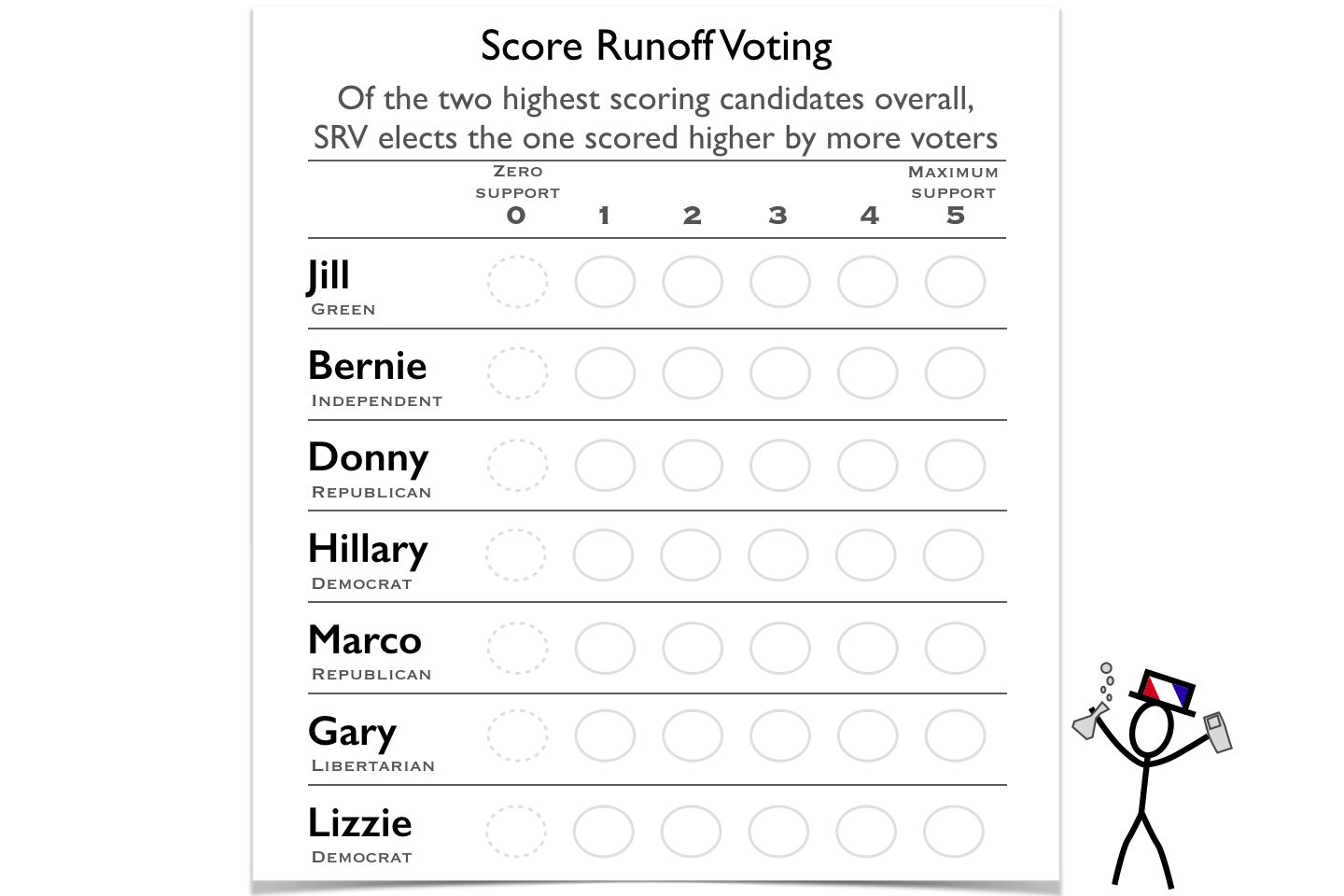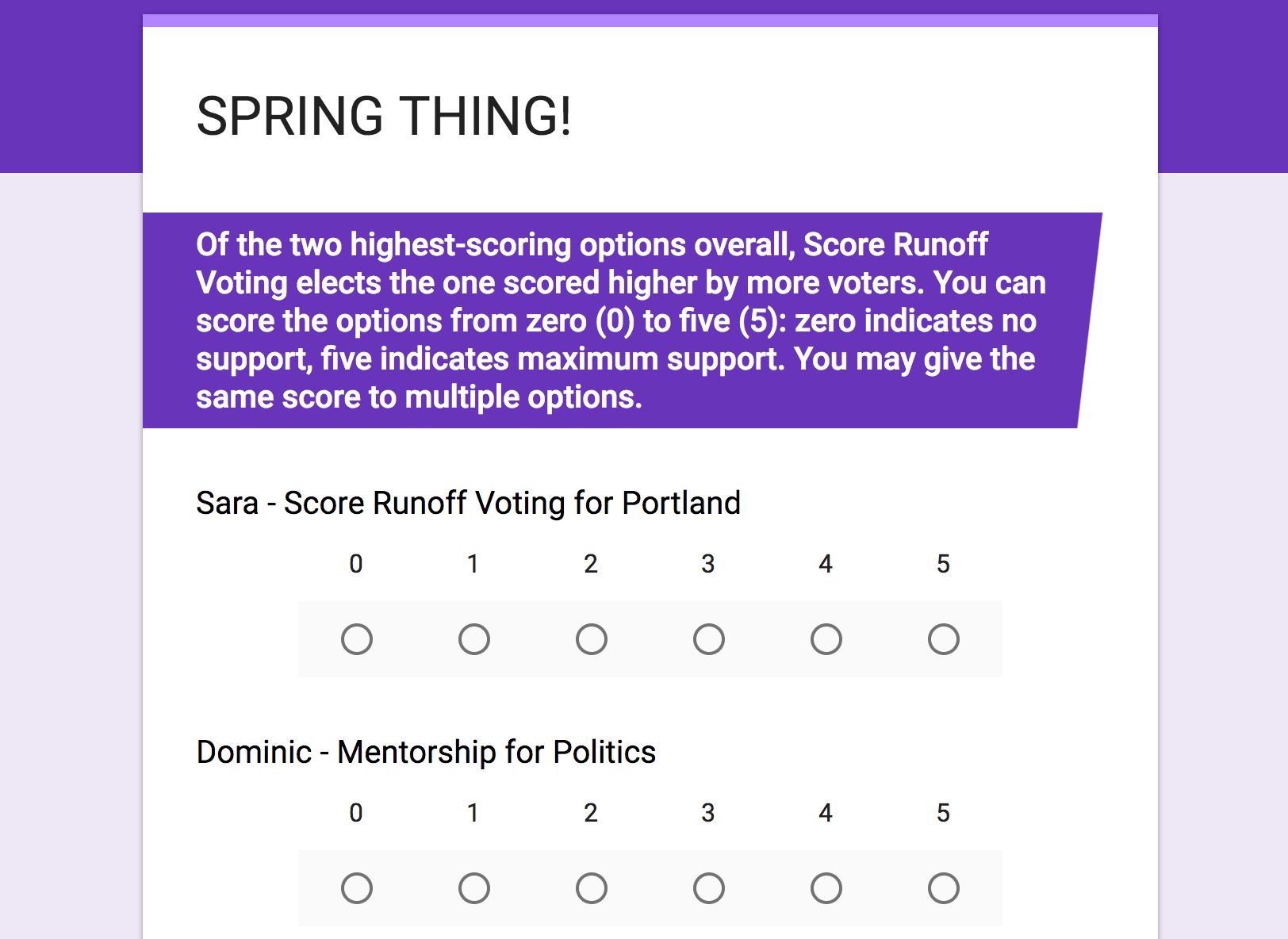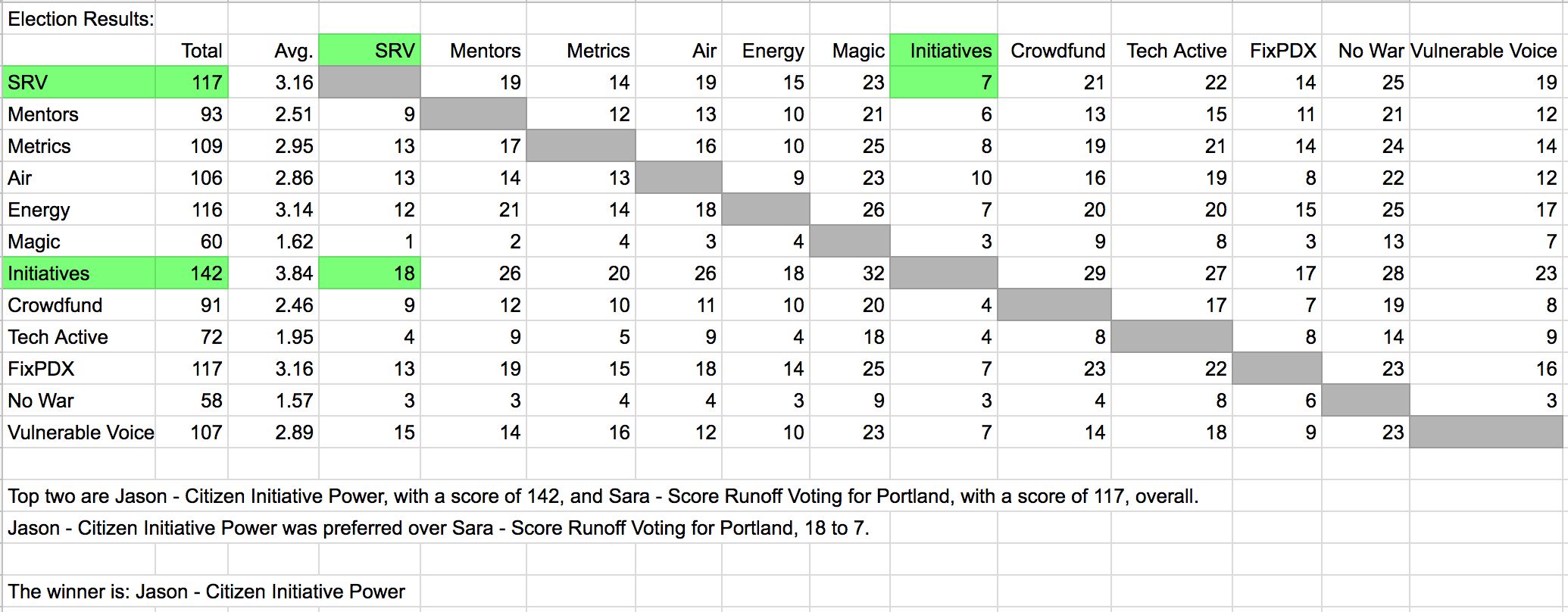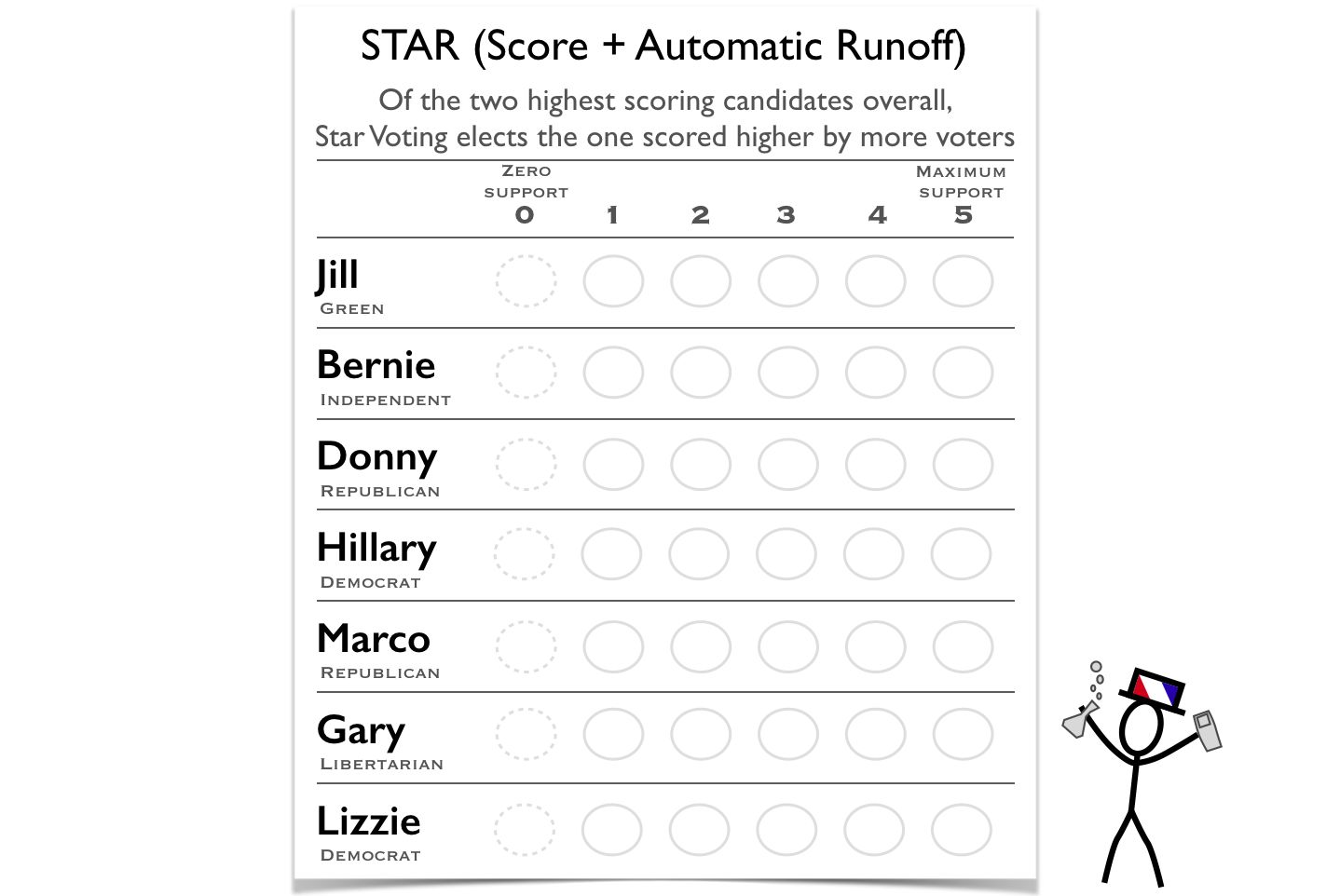Star Voting: Innovative, New Voting Method Gets First Trial in Oregon

If my Google News Alerts are a valid indicator, public interest in election process reform has seen a huge increase since the 2016 U.S. Presidential Election. We're witnessing this directly here in Oregon as we work to bring Score Runoff Voting (SRV) to public elections for the first time. The purpose of Score Runoff is to finally break the tradeoffs inherent in prior proposals for single-winner elections and enable accurate representative elections that let voters honestly express their opinions on the field of candidates in every vote.

Contemporary analytical methods and substantial online vetting show that SRV has the potential to outperform other single winner voting system proposals, but the proof comes in actual use: will voters quickly understand the mechanics of the system and be able to effectively express themselves? Will the results be clear and easy-to-understand?
We needed a field trial! (And we need a bunch more, more on that in a bit...)
Fortunately, Portland Forward graciously allowed us to invite ourselves to officiate the world's first public poll using SRV this last weekend at their annual SPRING THING!!!. SPRING THING!!!'s purpose is to "bring together a diverse and multi-generational group of citizens who are invested in leaving this city better than we found it, to empower citizen voices, and make change happen." What better place to give true democracy a test-drive?
The day began with 12 one-minute pitchers, squared off to explain why the audience should support their ideas into one of several hour-long breakout sessions. From fixing Portland's commissioner/bureau governmental structure, to air quality and more just energy policies, the candidates represented a fantastic stress test of an electoral method.
The Balloting Process

We used both online and paper ballots for the election. For the online ballots, Google Forms proved to be a huge win: because we didn't know the candidate names or topics in advance, we had to fill out the form options as people were already voting. Fortunately Google Forms handles this without a problem, since it can be configured to allow voters to update their submissions as many times as they want. We manually added the paper ballots to the Google Sheet output from the election.
Voters were given a 60-second explanation by yours truly, plus a Jefferson Smith distillation ("Zero stars bad! Five stars good!"). Although the strong majority of the audience had never heard of Score Runoff Voting before, few had any difficulty filling out and submitting ballots, and the election process was completed within several minutes.
The Count
We used the Google Sheet version of the SRV Election Calculator to compute the results:

Some cool things to note:
SRV easily handled an election with multiple strong candidates. This was evidenced by the significant quantity of top-scored options on the resultant ballots. Because RCV/IRV can produce non-representative outcomes with as few as three strong candidates in the race, demonstrating candidate scalability is key for any new system proposal.
Ballots showed score differentiation. Some critics of scoring systems have posited that voters will only use the ends of the range (i.e. 0 and 5), instead of sharing nuanced opinions on the options, and that a significant number of voters will attempt to gain an advantage by bullet voting. The runoff step in SRV, which corrects for the hypothetical strategic bullet voting advantage, appears to counter its use in practice as well.
People get scoring. 0-5 particularly. The cultural ubiquity of scoring systems - from Amazon, the Apple Store, and Yelp that all use 5-star rating systems for their community reviews, to Olympic judging, scholastic grading and beauty contests - led to the immediate comprehension of the balloting process.
The results give real insights, and scoring and preferences are well-correlated. SRV showed both a level of overall support for each candidate, as well as the preference pairings between all the candidates. As Sara noted below, SRV tied for second place in the scorings, but actually beat Novick's FixPDX plan by one vote (14-13) in the preferences. Jason, the winner, beat the second and third place scorers by 18-7 and 17-7 in the preference totals respectively.
SRV, as a reform effort, did well amongst the contenders! Sara, who gave the one-minute pitch for using SRV in Portland and Oregon elections later wrote, "Our new voting system, Score Runoff Voting killed it today at Portland Forward's Spring Thing Event! 12 people presented epic ideas that Portlands best and brightest movers and shakers should be working on this coming year. We each had 1 minute only. I TIED FOR SECOND PLACE WITH STEVE NOVICK!!! Jason Kaufory won first place with a pitch to reform our ballot initiative process." Nice work Sara!
Zero to One, One to N
Since SRV came in second overall, we were granted one of the coveted SPRING THING!!! breakout sessions. In addition to discussing the initiative efforts in Eugene and Portland, we spent a good deal of time talking about how to communicate the effort, including the name of the system. Like Instant Runoff Voting, Score Runoff Voting is a technical name. With the plethora of TLAs in the voting world (IRV, RCV, FBC, LNH, SRV, and on and on...), we found that voters frequently mixed up words in our proposed system name and had relatively low retention of the name after being told how it works.
So thanks again to Sara (and her mom), we chose a new name for the system... and it is... drum roll...
Star Voting! In addition to evoking the conventional and ubiquitous online 0-5 star rating systems, STAR makes for an even better acronym: Score + Automatic Runoff. Since voting systems in use today, in most cases, have multiple names, we're considering this an additive play, and expect to use SRV, Score Runoff, and Star Voting interchangeably in the immediate future.

Also, We Need More Data. With the creation of the Google Forms online SRV Calculator, running Star Voting elections is a snap. We're encouraging its use for everything from choosing lunch spots to corporate decision-making to student body elections and everything in between. Give it a go -- if you use it in a vote, let us know!
Momentum. We now have active campaigns pushing to implement Star Voting in public elections in Oregon's Lane and Multnomah Counties, as well as parallel statewide reform proposal working its way through the legal drafting process. We expect to start gathering signatures this summer for 2018 votes, and are building momentum to make a demonstrably equal weight vote another significant Oregon first.
Exciting times ahead, stay tuned!
Editor's note: This article originally published on Equal.Vote on May 11, 2017, and has been published in its entirety with permission from the author.
Photo Credit: Africa Studio / shutterstock.com





